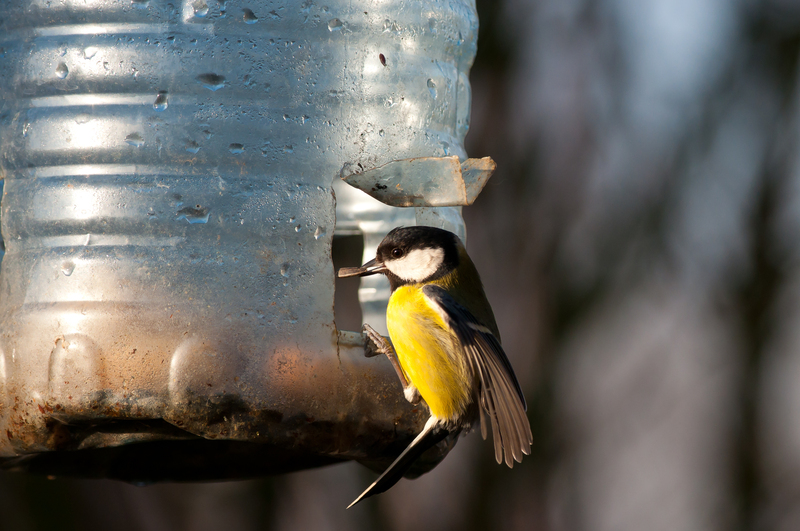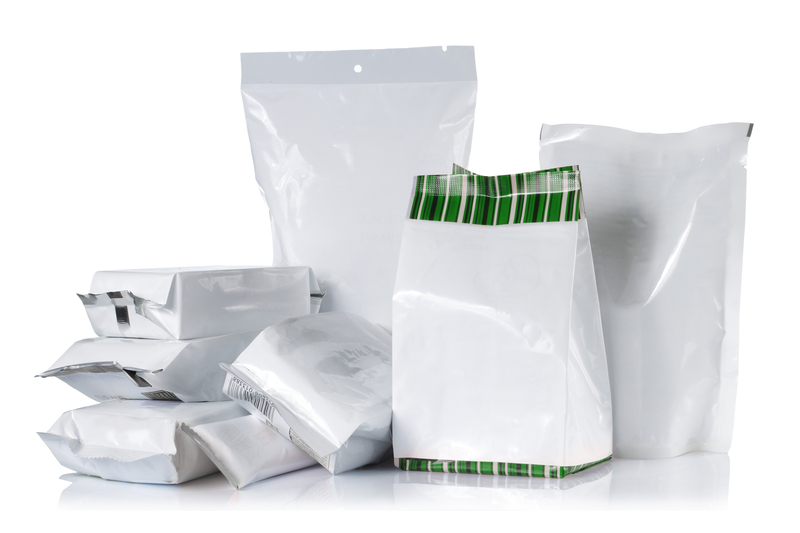How to Foster a Love for Recycling in Kids
Teaching children about recycling is more than just a lesson in environmental responsibility--it's a way to inspire lifelong habits that contribute to the health and sustainability of our planet. Encouraging a recycling mindset in youth doesn't have to be complicated. Instead, with a little creativity, patience, and enthusiasm, you can help spark a genuine love for recycling in your kids. This comprehensive guide will show you effective strategies, fun activities, and expert tips to nurture eco-friendly habits in your children.
Why Is Instilling a Recycling Habit in Children Important?
Building a foundation for environmental stewardship starts at a young age. When kids understand the value of recycling, they develop a sense of responsibility towards the environment, become more conscious consumers, and can influence their peers and even adults in positive ways.
- Early recycling education helps form positive, lasting habits.
- Children who recycle are more likely to make other sustainable choices as adults.
- Recycling reduces landfill waste and conserves natural resources.
- It fosters problem-solving and critical thinking skills.
Teaching kids about recycling is not just relevant at school; it should extend into the home and community. The sooner kids become engaged, the bigger the impact they can make.

Fun and Engaging Ways to Teach Children About Recycling
Making recycling fun is key to inspiring long-term interest. Try these creative approaches to show kids that recycling can be exciting and rewarding.
1. Turn Recycling into a Game
Children are naturally drawn to play. Transform the act of sorting recyclables into a friendly family competition or game. Here are some ideas:
- Sorting Races: See who can correctly sort materials the fastest.
- Recycling Scavenger Hunt: Make a list of common recyclables and have kids search the house for them.
- Recycling Bingo: Create bingo cards with images of recyclable items--reward completed lines with eco-friendly prizes.
*Games help children internalize recycling guidelines* and foster friendly competition, making recycling a joyful part of their daily lives.
2. Recycle with Art and Crafts
Crafting with recyclables turns waste into creativity. Use old magazines, bottle caps, or cardboard boxes for art projects.
- Junk Art: Let kids build sculptures from cleaned recyclables.
- Recycled Instruments: Make shakers from plastic bottles or drums from cans.
- Cardboard Castles: Use boxes to create playhouses or costumes.
Allowing kids to see the value in repurposing waste encourages both recycling and creative thinking.
3. Share Recycling Stories and Educational Books
Storytelling is a powerful educational tool. Read books about nature, recycling, and caring for the earth. Ask your local librarian for recommendations, or check out popular children's titles such as:
- The Adventures of a Plastic Bottle by Alison Inches
- Michael Recycle by Ellie Bethel
- Why Should I Recycle? by Jen Green
Through stories, children connect emotionally and intellectually with environmental themes, making recycling a part of their identity.
Modeling Responsible Recycling Habits
Children learn best by watching the adults in their lives. If you want your children to value recycling, demonstrate consistent, positive recycling behavior yourself.
- Always separate recyclables and discuss why you're doing it
- Explain the benefits of recycling during household chores
- Bring kids with you to recycling centers or community clean-up events
- Thank kids for remembering to recycle and correct mistakes gently
Your actions speak volumes. Enthusiasm is contagious--when kids see recycling as a normal and meaningful activity, they're more likely to adopt the habit early on.
Learning Through Real-World Experiences
Take your child's recycling knowledge beyond the home with hands-on experiences. Exposure to real-world recycling efforts helps them understand the process and its impact.
Visits to Recycling Centers
Tour a local recycling facility, where children can:
- Observe how materials are sorted and processed
- See the volume of waste and the importance of proper sorting
- Ask questions and interact with facility staff
Community Events and Clean-Ups
Get involved in community recycling initiatives or local environmental projects. Activities like:
- Neighborhood litter pick-up days
- Community festivals focused on sustainability
- Eco-friendly school fairs
Recycling Challenges at School
Encourage your child's school to host recycling challenges or competitions:
- Which class can collect the most recyclables?
- Host a "recycled art" contest
- Organize educational assemblies on waste reduction
Answering Kids' Questions About Recycling
Children are naturally curious and may ask tough questions about recycling. Be prepared to answer in clear and simple terms:
- What happens to items after they're recycled? Most recyclable materials are processed and used to make new products!
- Why can't everything be recycled? Some materials, like greasy pizza boxes or certain plastics, can't be recycled because they're too dirty or mixed with other substances.
- Does recycling really help the planet? Absolutely! Recycling reduces energy use, saves natural resources, and keeps waste out of landfills and oceans.
Being honest and informative helps children understand the difference their efforts make.
Setting Up a Kid-Friendly Recycling System at Home
Make it easy for children to participate by creating a simple, accessible recycling system.
Tips for a Successful Family Recycling Station:
- Label bins clearly with pictures and words for paper, plastic, metal, and glass
- Place recycling bins in easy-to-reach spots like the kitchen, bathroom, and play areas
- Let kids decorate bins with their own artwork or stickers
- Include a guide or poster showing what can and can't be recycled
- Review the rules regularly to minimize contamination
A little organization can go a long way in building consistency and excitement.
Expanding Beyond Recycling: Reduce and Reuse
While nurturing a passion for recycling is essential, it's equally important to discuss the *3 Rs*: Reduce, Reuse, and Recycle.
Teaching Kids to Reduce Waste
- Encourage using reusable containers and bottles
- Show them the impact of one-use plastics and disposable items
- Talk about shopping for items with minimal packaging
The Power of Reusing
- Find new uses for jars, ribbons, and containers
- Organize clothing swaps and toy exchanges with friends
- Visit thrift stores together and hunt for treasures
Emphasizing the full spectrum of sustainability helps kids understand that every action counts in fighting waste.
Overcoming Common Challenges When Teaching Recycling to Kids
Fostering a love for recycling in children isn't always smooth sailing. Here's how to address some of the most common obstacles:
- Confusion about materials: Use color-coded bins and simple visuals to help kids quickly identify recyclables.
- Lack of motivation: Celebrate milestones (like a month of successful recycling) with rewards such as an eco-friendly treat or a certificate.
- Limited recycling services: If your community doesn't accept all materials, focus on what is accepted and look for alternative drop-off centers for special items.
Remember, patience and consistency are key. Small steps taken every day lead to lifelong eco-friendly habits.
Encouraging Long-Term Commitment and Pride
To foster a deep love for recycling in kids, nurture a sense of pride and accomplishment in their actions.
Ways to Celebrate Green Achievements
- Track how much your family recycles each month and set goals
- Display certificates or badges recognizing your child's efforts
- Create a "Green Leader" role where kids take turns being in charge of household recycling
- Share your children's recycling projects on social media or with relatives
When children see tangible evidence of their positive impact, they are motivated to do more.

Resource List: Further Reading and Activities
Here are some useful websites, apps, and resources for parents and educators looking to inspire recycling enthusiasm:
- EPA's Recycling Basics
- National Geographic Kids: Recycling Guide
- Recycle for Kids
- Check your local municipality's website for recycling rules and events
Conclusion: Inspiring the Next Generation of Recyclers
Building a recycling habit in children is one of the most impactful gifts we can pass to the next generation. With creativity, consistency, and a sense of fun, you can ignite a passion for recycling in your kids that lasts a lifetime.
Remember, every recycled bottle, can, or newspaper is a small victory for the planet. By teaching your children the value of recycling, you aren't just reducing waste--you're empowering them to be mindful, caring, and proactive citizens of the Earth.
*Start today, and watch your child's love for recycling grow!*